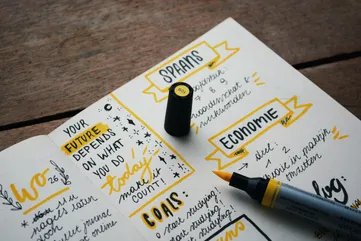Work Ethic Development
Work ethic development involves building values, habits, and attitudes toward effort, responsibility, and perseverance that lead to consistent achievement and personal satisfaction.
You're not alone
If your teen does the bare minimum, rushes through assignments, or seems allergic to effort, you're facing a common modern challenge. Research shows work ethic has declined generationally, partly due to instant gratification culture and reduced childhood responsibilities. Many teens haven't experienced the satisfaction of hard-earned achievement. The good news is work ethic can be developed at any age through structured experiences and consistent expectations.
What it looks like day to day
Student
Your teen redoes assignments voluntarily when unsatisfied with quality rather than accepting "good enough."
Parent
You watch your teen tackle difficult tasks without complaining, taking pride in effort regardless of outcome.
Tiny steps to try
- 1
Quality standards
Set family standards for effort. "We do things well or do them again" becomes household culture.
- 2
Process praise
Celebrate effort and improvement, not just outcomes. "Your persistence on that problem was impressive."
- 3
Contribution requirements
Assign meaningful household responsibilities. Real contributions build work identity.
- 4
Natural consequences
Let poor effort lead to natural outcomes. Experience teaches better than words.
- 5
Work-reward connections
Link privileges to responsibilities. Effort earns freedom, not age alone.
Why work ethic requires intentional development
Work ethic isn't inherited but learned through experience, modeling, and gradual responsibility increases.
Key work ethic components:
• Reliability and follow-through
• Pride in quality work
• Persistence through challenges
• Personal responsibility
• Time and effort investment
• Delayed gratification acceptance
These develop through practice, not lectures.
References
Duckworth, A. (2016). Grit: The power of passion and perseverance. Scribner.
Ready to help your teen thrive?
Get personalized 1-on-1 coaching to build better habits and boost grades. Join 10,000+ families who trust Coachbit.
Frequently Asked Questions
How do I build work ethic without creating a perfectionist?
Focus on effort and growth, not perfection. Teach that excellent work comes from caring and trying, not being perfect. Celebrate improvements and learning from mistakes. Set high but achievable standards. The message should be "always try your best" not "nothing's ever good enough." Model self-compassion alongside strong effort.
My teen says they don't care about grades or success. Help?
Find what they do care about and build from there. Gaming requires work ethic; highlight those skills. Connect current effort to future autonomy: "Working hard now earns freedom later." Sometimes apparent apathy masks fear of failure. Address underlying anxieties while maintaining expectations. Work ethic grows from experiencing success through effort.
Related Terms
Motivation
Motivation is the internal and external forces that drive your teen to initiate, sustain, and direct effort toward goals despite obstacles or competing interests.
Perseverance
Perseverance is the ability to persist through challenges, setbacks, and boredom to achieve long-term goals despite obstacles and temporary failures.
Self-Discipline
Self-discipline is the ability to consistently follow through on commitments and maintain positive behaviors even when motivation wanes or distractions arise.
Related Articles

4 Steps to Teenage Habit Building
Habits are the behaviors we do each day. By following the 4 laws of habit formation, we can tap into the teenage brain’s learning power and change behavior.
Read article
5 Goal Setting Principles to Motivate Kids
The 5 principles of goal setting can help kids to set and accomplish goals that are achievable. Effective goal setting can be motivation for kids.
Read article
